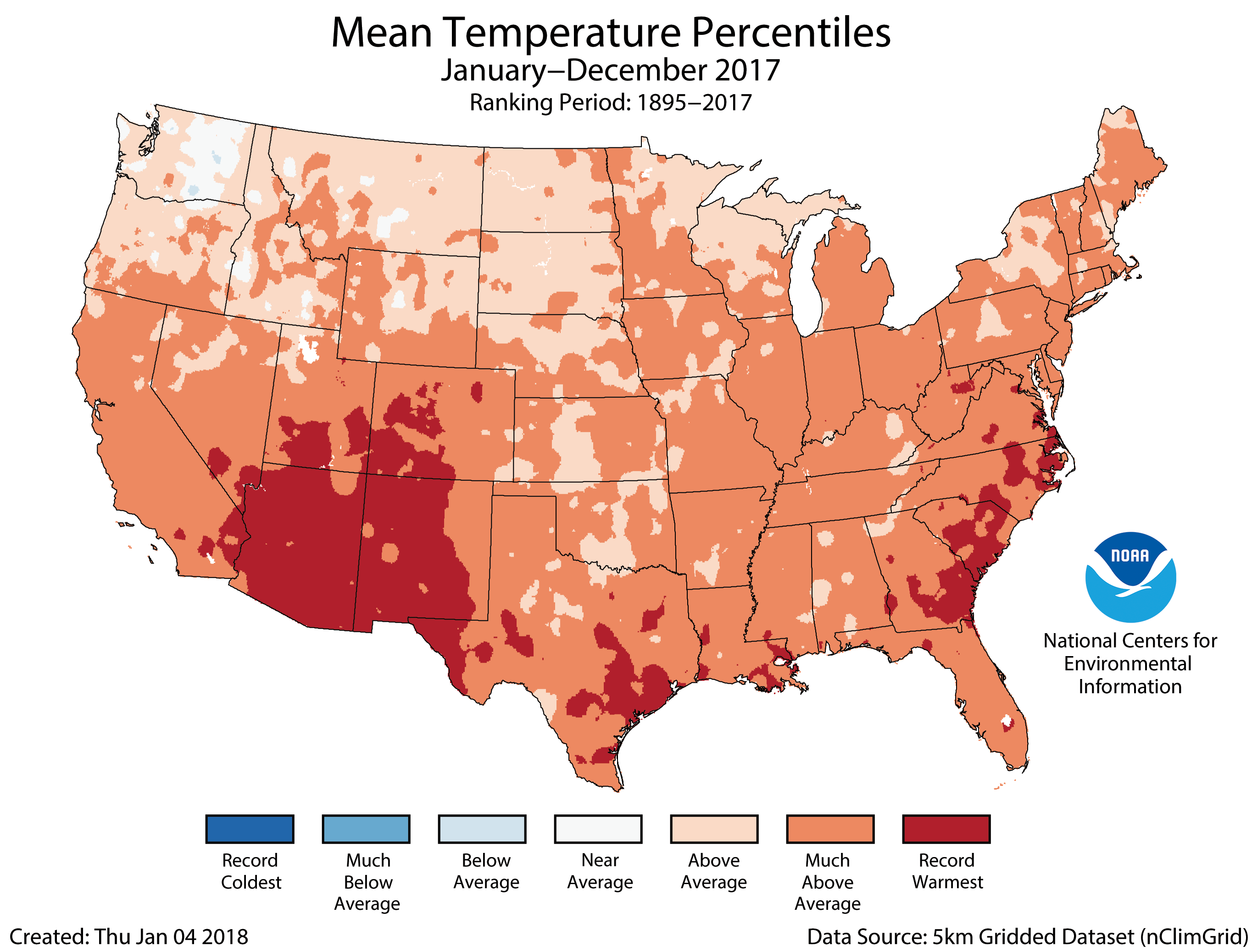

While some on the East Coast might not believe it (see: bomb cyclone), but the National Oceanic and Atmospheric Administration says 2017 was the continental United State’s third hottest year on record.
That might be easier to believe here in Colorado, with the lowest snowpack average in 37 years, and the warmest February and November ever recorded in 2017. It was also the Centennial State’s third warmest year on record, according to the climate center at Colorado State University.
It was hotter for others here though. If you look only at the Western Slope, “it was their record warmest year,” says Becky Bolinger, the state’s assistant climatologist.
She also noted that warmer weather stretched out in Denver in 2017, breaking the city record for the earliest 80-degree day and their “latest 80-degree temperature in calendar year. So the length for when you can have warm temperatures was greatly increased for 2017," Bolinger says.
Jake Crouch, a NOAA climate scientist, says the average temperature across the lower 48 states was 2.6 degrees Fahrenheit above the 20th century average.
“Only 2012 and 2016 have been warmer in the 123-year period of record,” Crouch says. “This also marks the twenty-first consecutive year that the lower 48 average temperature has been above the 1901 to 2000 average temperature."
For precipitation, 2017 was the 20th wettest on record. But Crouch took note of the year-end dry spell parts of the U.S. are now experiencing. That includes Colorado — Bolinger says December was the state’s seventh driest on record.
"If we have this warmth continue, we're going to have trouble keeping the snowpack that we've had this winter,” Bolinger says. “It might melt early, and we might see that we don't have a strong recharge of our water supplies.”
MORE: New Report Shows Weather Disasters In 2017 Cost More Than $300 Billion








